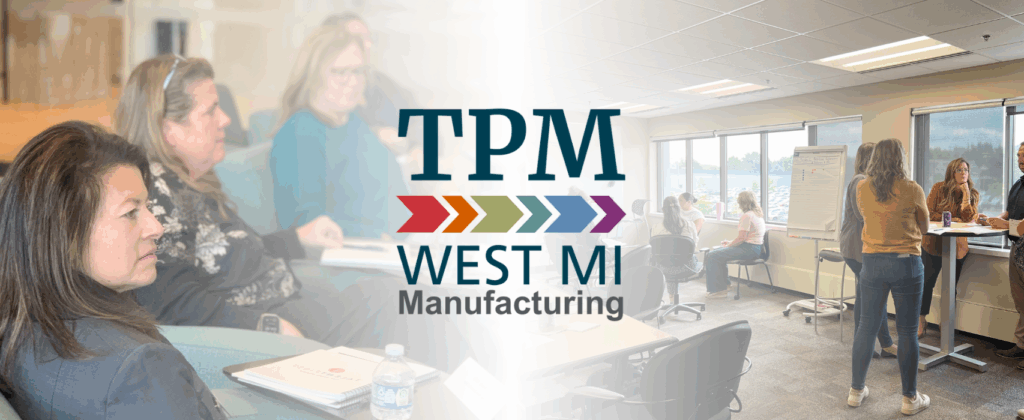Despite some encouraging news about Michigan’s high school graduation rate, demographics are still not on our side.
Increasing the graduation rate is essential. But declining birth rates mean we face an uphill battle in solving our need for skilled talent — unless we also provide education and upskilling opportunities for adults. Postsecondary tuition supports like Michigan Reconnect are part of a strategy to increase the percentage of the state’s workforce with a degree or training to 60 percent by 2030.
Tuition, however, is only one part of the equation for adult workers, who also must weigh the benefit of education against opportunity costs, such as lost wages while away from work, or the need to find child care. Some must make the difficult calculation of how a better-paying job might leave their family worse off if they lose safety-net benefits.
And the bitter reality is that postsecondary education remains entirely out of reach for the hundreds of thousands of Michigan adults — 716,000 according to 2019 Census data — who lack a high school diploma.
To explore ways to address these barriers, TalentFirst has been selected by national nonprofit Third Sector and the U.S. Chamber of Commerce to develop a Lifelong Learning Account pilot. In a news release announcing the pilot, Third Sector describes Lifelong Learning Accounts as “a new concept for financing education and training”:
“These accounts enable individuals to get the education, upskilling to deepen existing skills in a chosen field, and/or re-skilling to learn a new trade or industry, opening doors to higher-paying jobs and economic opportunities. Unlike employer-sponsored training programs conditional on employment, LiLAs are envisioned as universal, portable accounts, empowering individuals to control their learning and career path. With the flexibility to use public and private funds, including matched contributions, LiLAs empower individuals with more choices and agency in their educational pursuits.”
TalentFirst will lead the Michigan cohort (the others will be in Indiana, Tennessee, and Texas) with partners Paramelt, The Source, and West Michigan Works!
Flexible accounts for education
The pilot, still under development, will seek to create worker-centered accounts that are portable, flexible, and can be used on demand. Similar to a retirement account, a worker can make tax-advantaged contributions to their LiLA that can be matched by the employer and additional contributions by a third party.
The advantage of a LiLA is that the funding can be used for a wide range of programming — digital skills training, literacy instruction, high school completion or postsecondary education are just some examples. Once allowable uses are established, the funds could also offset other education-related costs, such as transportation, technology and child care.
The pilot’s initial focus will be on Kent, Ottawa and Muskegon counties, with an emphasis on workers in healthcare and manufacturing. These sectors have some of the region’s largest talent gaps and most diverse workforces.
Part of an overall strategy
The LiLA pilot complements other TalentFirst initiatives and priorities, notably:
- The need to improve the quality and reach of Michigan’s adult basic education system, which currently serves only a fraction of the need. This was highlighted in our 2023 report, Restoring the Promise of Adult Education.
- The Education-to-Employment Partnership we launched last year as a collaboration with employers, education and training providers, and community organizations to help recent high school graduates, workers and unemployed adults to discover, access, and complete skills-based pathways into high-demand jobs requiring postsecondary training.
- Our work to expand understanding of the “benefits cliff” faced by many families in poverty. Too many are forced to reject a job offer, promotion, or raise because they don’t have the information, capacity, or time to determine how these decisions will affect their public benefits.
TalentFirst also is working to improve adult postsecondary enrollment and completion through The Michigan Center for Adult College Success. The Center is focused on building relationships with and between postsecondary institutions, employers, nonprofits and state government to help address the barriers adults face, from enrollment to credential completion.
Michigan cannot afford to overlook the potential of its adult workforce. Doing so harms our long-term competitiveness, has a negative societal impact, and incurs long-term costs to taxpayers. Improving the education of our adult population also pays long-term dividends — including by serving as a positive influence for the next generation of learners and workers.
To learn more about the LiLA pilot, email Director of Business Intelligence & Workforce Innovation Alex Andrews.


